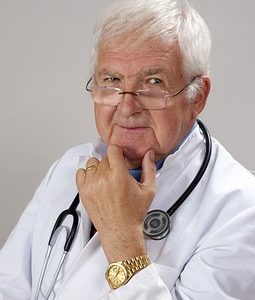By CBSNews.com.
You’ve seen those restaurant washroom signs that say employees must wash hands. And you also know the reason is to prevent the spread of germs to customers.
With that in mind just get a load of where 2 million Americans a year get infections and why. CBS News Correspondent Jim Axelrod has the dirty details.
When he checked in to this hospital in New Jersey for spinal surgery, the last thing Bill Shuster expected was to leave sicker than he arrived.
“When I went in the hospital, I was healthy. And after surgery, I started getting sick, fever,…sweating,…not eating,” Shuster says.
During his stay, Shuster contracted a painful and permanent bone infection that was misdiagnosed. In part he blamed poor hygiene among the hospital staff and won a $12 million malpractice verdict.
“Half the time…they wouldn’t change their gloves,” he says. “They wouldn’t put masks on.Â…It was always like a rush to get it done.”
Shuster is one of 2 million patients who acquire infections each year in U.S. hospitals. Twenty thousand will be fatal. It turns out that reducing these numbers has less to do with what’s taught in medical school than what’s taught in kindergarten.
“Hand washing by health care workers is probably the No. 1 way of keeping these infections from occurring. A number of studies have been done showing that approximately 50 percent of health care workers wash their hands as recommended,” says Dr. William Jarvis of the Centers for Disease Control.
Just half wash their hands correctly? It seems inconceivable the same people performing high-tech medical miracles could miss something so basic especially in an age of ever-multiplying strains of antibiotic resistant bacterium.
“I don’t think they see infection/hand washing as part of their specialty. An individual may be trained to be a surgeon or urologist or gynecologist, and he’s totally involved in that, and he doesn’t see infection control,” says Dr. Maryanne McGuckin of the University of Pennsylvania.
Or maybe there’s a simpler explanation: Downsized, overwhelmed hospital staffs looking for a place to save 15 seconds in the rush to save a life.
“As the workload increases…there’s less time and the one thing that’s going to go is hand washing,” McGuckin says.


Be the first to comment on "Hand Washing"